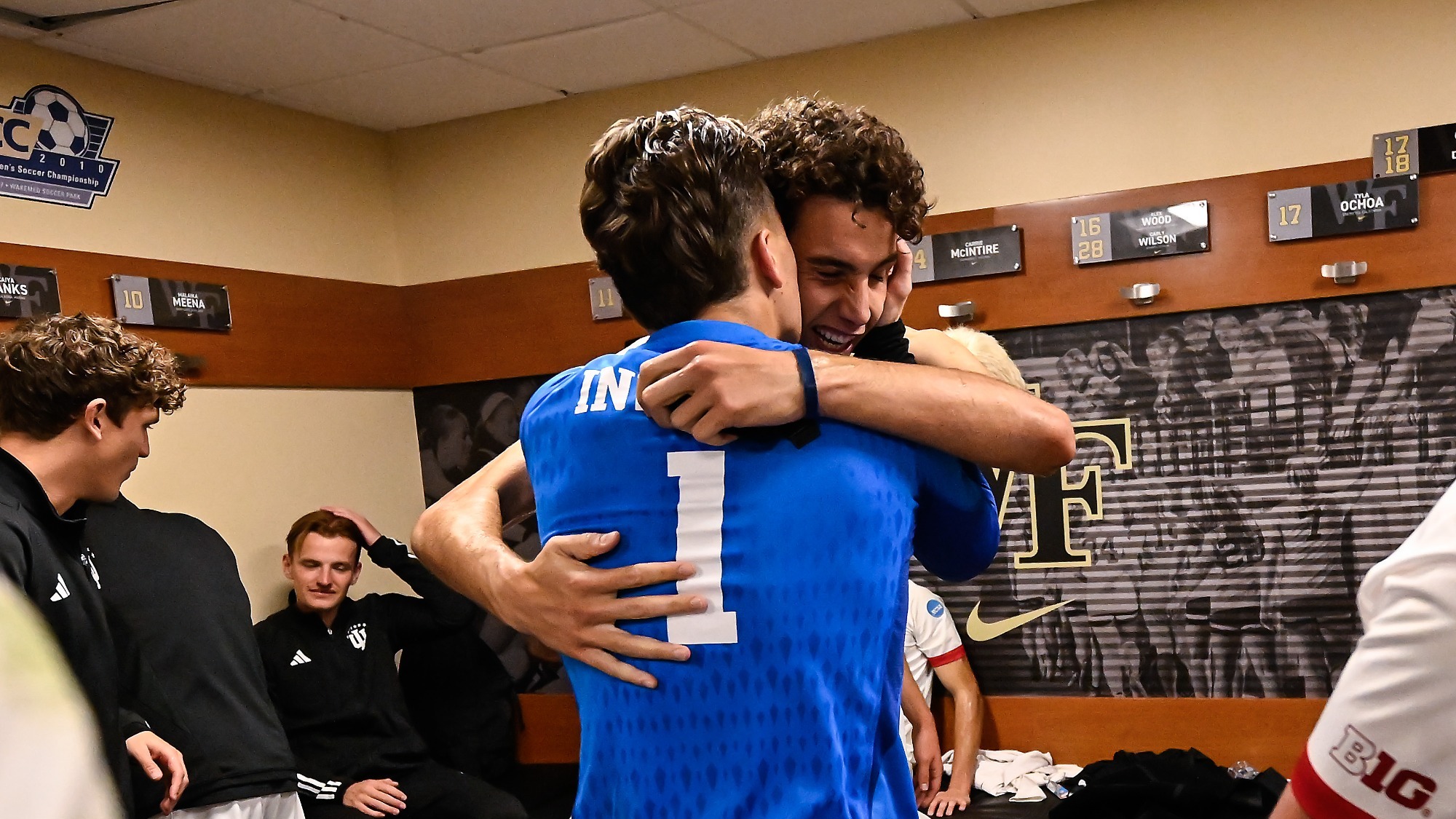Colleges
- AAC
- ACC
- Big 12
- Big East
- Big Ten
- Pac-12
- SEC
- Atlantic 10
- Conference USA
- Independents
- Junior College
- Mountain West
- Sun Belt
- MAC
- More
- Navy
- UAB
- Tulsa
- UTSA
- Charlotte
- Florida Atlantic
- Temple
- Rice
- East Carolina
- USF
- SMU
- North Texas
- Tulane
- Memphis
- Miami
- Louisville
- Virginia
- Syracuse
- Wake Forest
- Duke
- Boston College
- Virginia Tech
- Georgia Tech
- Pittsburgh
- North Carolina
- North Carolina State
- Clemson
- Florida State
- Cincinnati
- BYU
- Houston
- Iowa State
- Kansas State
- Kansas
- Texas
- Oklahoma State
- TCU
- Texas Tech
- Baylor
- Oklahoma
- UCF
- West Virginia
- Wisconsin
- Penn State
- Ohio State
- Purdue
- Minnesota
- Iowa
- Nebraska
- Illinois
- Indiana
- Rutgers
- Michigan State
- Maryland
- Michigan
- Northwestern
- Arizona State
- Oregon State
- UCLA
- Colorado
- Stanford
- Oregon
- Arizona
- California
- Washington
- USC
- Utah
- Washington State
- Texas A&M
- Auburn
- Mississippi State
- Kentucky
- South Carolina
- Arkansas
- Florida
- Missouri
- Ole Miss
- Alabama
- LSU
- Georgia
- Vanderbilt
- Tennessee
- Louisiana Tech
- New Mexico State
- Middle Tennessee
- Western Kentucky
- UTEP
- Florida International University
High School
- West
- Midwest
- Northeast
- Southeast
- Other
- Alaska
- Arizona
- California
- Colorado
- Nevada
- New Mexico
- Northern California
- Oregon
- Southern California Preps
- Washington
- Edgy Tim
- Indiana
- Kansas
- Nebraska
- Iowa
- Michigan
- Minnesota
- Missouri
- Oklahoma Varsity
- Texas Basketball
- Texas
- Wisconsin
- Delaware
- Maryland
- New Jersey Basketball
- New Jersey
- New York City Basketball
- Ohio
- Pennsylvania
- Greater Cincinnati
- Virginia
- West Virginia Preps
ADVERTISEMENT
Install the app
How to install the app on iOS
Follow along with the video below to see how to install our site as a web app on your home screen.
Note: This feature may not be available in some browsers.
You are using an out of date browser. It may not display this or other websites correctly.
You should upgrade or use an alternative browser.
You should upgrade or use an alternative browser.
@ Wake Forest: Sunday 5:00
- Thread starter GeddyHoosier
- Start date
Only like 30 goals this season, but they are pretty defensive. I did see they haven’t won a game in a monthI expect a low scoring game. From what I’ve read, Wake not an explosive offensive team.
Great, so they are due! Or maybe IU is due to finally beat Wake, sine they’ve lost the last several head to heads. Most recent in 2018 when they beat our Gutman team In the season opener.Only like 30 goals this season, but they are pretty defensive. I did see they haven’t won a game in a month
Great, so they are due! Or maybe IU is due to finally beat Wake, sine they’ve lost the last several head to heads. Most recent in 2018 when they beat our Gutman team In the season opener.
Wake Forest
ESPN + = $11 per month? Can’t see signing up to another service just for this…
I’m just as happy following the live stats on iuhoosiers.comESPN + = $11 per month? Can’t see signing up to another service just for this…
Interesting stuff. They lost in the first round of the ACC and haven played since Nov 5. Rest or rust? We’ll find out this evening.Wake Forest
rpiupdatemenssoccer.blogspot.com
That is what some of the more prominent soccer guys are saying. They maybe a little rusty. I did see one of the main NCAA reporters pick them over us, since he thinks they are more consistent. Soccer is an intriguing sport, so let’s see what happens at 5Interesting stuff. They lost in the first round of the ACC and haven played since Nov 5. Rest or rust? We’ll find out this evening.
Virginia and FIU tied at 1-1 halftime. Winner plays IU-Wake winner.
Elsewhere, Georgetown eliminated By James Madison.
Elsewhere, Georgetown eliminated By James Madison.
DiPrimio on Mihalic

 iuhoosiers.com
iuhoosiers.com

DiPrimio: Mihalic a Catalyst in IU’s Latest Surge - Indiana University Athletics
He leads. He disrupts and pressures and creates.
Game preview:

 iuhoosiers.com
iuhoosiers.com

Indiana, No. 10 Wake Forest Meet in NCAA Tournament Second Round - Indiana University Athletics
Kickoff is set for 5 p.m. ET.
I hate fluke goalsWake strikes first: 1-0 in 20th minute.
It’s not golden goal. Have to defend like hell a few more minutes. Up 3-2 on a Jansen Milker goal.never bet against IUMS
Looks like they now credited the goal to Bacharach. End of 1st OT. I think the rule should be if you score in first OT and the other team doesn’t tie, it should be game over. Have to play 10 more minutes?It’s not golden goal. Have to defend like hell a few more minutes. Up 3-2 on a Jansen Milker goal.
It’s final. IU wins 3-2 in 2OT, coming back twice from 1 goal deficits. At Virginia next week. Well done, boys!
Big Red Crimson Buffalo very unhappy. He had his “Todd Yeagley sucks” thread all ready to post for the last couple hours!
Has to hold on to it at least 1 more week.
Has to hold on to it at least 1 more week.
https://dxbhsrqyrr690.cloudfront.ne...stats/msoc/2023/pdf/20231119074404-286272.pdf
box score … saw a ‘remark’ elsewhere that said IU football “Sweet 16“ 9 years running.
box score … saw a ‘remark’ elsewhere that said IU football “Sweet 16“ 9 years running.
Which was to be found in the match notes
A WIN WOULD:
• Advance Indiana to the NCAA Tournament Third Round for a ninth consecutive season, extending the nation's longest active streak...
• Mark Todd Yeagley's 199th head coaching victory.
• Give in Indiana its 11th win in 12 matches.
KEY STORYLINES:
It's a matchup between two programs that have attended every NCAA Tournament together since 2010. The red-hot Indiana Hoosiers will visit No. 10 national seed Wake Forest in the second round of the 2023 tournament.
A WIN WOULD:
• Advance Indiana to the NCAA Tournament Third Round for a ninth consecutive season, extending the nation's longest active streak...
• Mark Todd Yeagley's 199th head coaching victory.
• Give in Indiana its 11th win in 12 matches.
KEY STORYLINES:
It's a matchup between two programs that have attended every NCAA Tournament together since 2010. The red-hot Indiana Hoosiers will visit No. 10 national seed Wake Forest in the second round of the 2023 tournament.
good to see some bench production.https://dxbhsrqyrr690.cloudfront.ne...stats/msoc/2023/pdf/20231119074404-286272.pdf
box score … saw a ‘remark’ elsewhere that said IU football “Sweet 16“ 9 years running.
Honestly thought you’d misspoken somehow. Looked at box score and there it was, we score in first OT and then there’s another OT. Makes absolutely zero sense. If you want to say there’s one OT with two halves, maybe? I’m mystified…Looks like they now credited the goal to Bacharach. End of 1st OT. I think the rule should be if you score in first OT and the other team doesn’t tie, it should be game over. Have to play 10 more minutes?
The rule: The NCAA Playing Rules Oversight Panel changed overtime rules in 2022. Now, regular season matches that are tied at the end of the 90 minutes of regulation will end in a tie. Previously, college soccer games in a stalemate after full time would enter two 10-minute periods of sudden-death overtime, known colloquially as "golden goal" rules, and games would only end in a tie if the score remained even after 110 minutes.
What it means: The rule change cuts down the total minutes of soccer a team can play over the course of the season and also evens out each team's schedule, meaning everyone has played the same amount of minutes and no team will have played significantly more than any opponent (with the fatigue that comes with that).
READ MORE: NCAA Playing Rules Oversight Panel approves changes to video review, protests and more
What it means: While golden goal rules seem to generate exciting finishes in knockout soccer, in theory, the sudden-death rules affect the quality of play in practice. Often, neither team commits numbers forward for fear of leaving itself vulnerable to a tournament- or season-ending counterattack goal. The general idea behind this rule change is to improve the quality of play, giving teams a chance to get back into the game even after conceding in overtime.
What it means: The rule change cuts down the total minutes of soccer a team can play over the course of the season and also evens out each team's schedule, meaning everyone has played the same amount of minutes and no team will have played significantly more than any opponent (with the fatigue that comes with that).
READ MORE: NCAA Playing Rules Oversight Panel approves changes to video review, protests and more
NO MORE GOLDEN GOAL IN THE POSTSEASON
The rule: The days of the golden goal are over. As of 2022, if a postseason game (meaning conference or NCAA tournament) is tied after 90 minutes, overtime will not end when one team scores a goal. Even if a team scores seconds after kickoff in the first OT period, the game must continue until both 10-minute periods have been completed. Should the score remain even after both OTs, a penalty kick shootout will decide the winner.What it means: While golden goal rules seem to generate exciting finishes in knockout soccer, in theory, the sudden-death rules affect the quality of play in practice. Often, neither team commits numbers forward for fear of leaving itself vulnerable to a tournament- or season-ending counterattack goal. The general idea behind this rule change is to improve the quality of play, giving teams a chance to get back into the game even after conceding in overtime.
Good find- I knew about the regular season rule, but not the tournamen.The rule: The NCAA Playing Rules Oversight Panel changed overtime rules in 2022. Now, regular season matches that are tied at the end of the 90 minutes of regulation will end in a tie. Previously, college soccer games in a stalemate after full time would enter two 10-minute periods of sudden-death overtime, known colloquially as "golden goal" rules, and games would only end in a tie if the score remained even after 110 minutes.
What it means: The rule change cuts down the total minutes of soccer a team can play over the course of the season and also evens out each team's schedule, meaning everyone has played the same amount of minutes and no team will have played significantly more than any opponent (with the fatigue that comes with that).
READ MORE: NCAA Playing Rules Oversight Panel approves changes to video review, protests and more
NO MORE GOLDEN GOAL IN THE POSTSEASON
The rule: The days of the golden goal are over. As of 2022, if a postseason game (meaning conference or NCAA tournament) is tied after 90 minutes, overtime will not end when one team scores a goal. Even if a team scores seconds after kickoff in the first OT period, the game must continue until both 10-minute periods have been completed. Should the score remain even after both OTs, a penalty kick shootout will decide the winner.
What it means: While golden goal rules seem to generate exciting finishes in knockout soccer, in theory, the sudden-death rules affect the quality of play in practice. Often, neither team commits numbers forward for fear of leaving itself vulnerable to a tournament- or season-ending counterattack goal. The general idea behind this rule change is to improve the quality of play, giving teams a chance to get back into the game even after conceding in overtime.

IU Digs Deep to Down Deacs, Advance to Ninth Straight Sweet 16 - Indiana University Athletics
WINSTON-SALEM, N.C. — The 2023 Indiana men's soccer season has been a story of resilience, and the Hoosiers needed courage once again Sunday (Nov. 19) in...
Updated bracket. Not too many upsets aside from Georgetown:

 www.ncaa.com
www.ncaa.com

2023 Division I Men's Soccer Official Bracket | NCAA.com
The official 2023 College Men's Soccer Bracket for Division I. Includes a printable bracket and links to buy NCAA championship tickets.
that game winner was some voodoo shit! if i tried that, the ball would have hit me in the nuts.
Watched the highlights, Wake has some talent . that was a really good win
Watched the highlights, Wake has some talent . that was a really good win
I'm not sure how he did that and made it look so easy! Flicking your foot heel-first at a moving ball behind you and burying it? Wow!that game winner was some voodoo shit! if i tried that, the ball would have hit me in the nuts.
Watched the highlights, Wake has some talent . that was a really good win
The elimination of OT in the regular season and the elimination of Golden Goal in postseason couldn't be any more opposite. I don't understand not having golden goal at any level...if you played 90 and couldn't determine a winner, why play 20/30 more even if someone scores?The rule: The NCAA Playing Rules Oversight Panel changed overtime rules in 2022. Now, regular season matches that are tied at the end of the 90 minutes of regulation will end in a tie. Previously, college soccer games in a stalemate after full time would enter two 10-minute periods of sudden-death overtime, known colloquially as "golden goal" rules, and games would only end in a tie if the score remained even after 110 minutes.
What it means: The rule change cuts down the total minutes of soccer a team can play over the course of the season and also evens out each team's schedule, meaning everyone has played the same amount of minutes and no team will have played significantly more than any opponent (with the fatigue that comes with that).
READ MORE: NCAA Playing Rules Oversight Panel approves changes to video review, protests and more
NO MORE GOLDEN GOAL IN THE POSTSEASON
The rule: The days of the golden goal are over. As of 2022, if a postseason game (meaning conference or NCAA tournament) is tied after 90 minutes, overtime will not end when one team scores a goal. Even if a team scores seconds after kickoff in the first OT period, the game must continue until both 10-minute periods have been completed. Should the score remain even after both OTs, a penalty kick shootout will decide the winner.
What it means: While golden goal rules seem to generate exciting finishes in knockout soccer, in theory, the sudden-death rules affect the quality of play in practice. Often, neither team commits numbers forward for fear of leaving itself vulnerable to a tournament- or season-ending counterattack goal. The general idea behind this rule change is to improve the quality of play, giving teams a chance to get back into the game even after conceding in overtime.
Similar threads
- Replies
- 6
- Views
- 352
- Replies
- 0
- Views
- 198
- Replies
- 0
- Views
- 199
- Replies
- 1
- Views
- 175
- Replies
- 0
- Views
- 149
ADVERTISEMENT
ADVERTISEMENT

